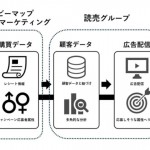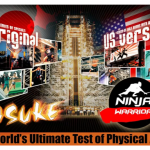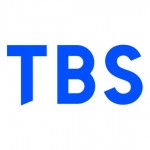Akamaiのターゲティング事業の買収についてMediaMath CEOのインタビュー
Yesterday, MediaMath announced that it was the winner of the long-rumored Acerno auction as Akamai officially exited its experiment with the advertising business – also known as Akamai’s Advertising Decision Solutions (ADS). (Read the Akamai release.) Of course, as a content distribution network (CDN), Akamai remains a critical part of media.
Terence Kawaja’s LUMA Partners led the auction.
When it was acquired by Akamai in 2008 for $95 million, the U.S. economy was tanking and Acerno was one of the earliest, pure-play ad platforms focused on retargeting consumers who visited ecommerce sites. Akamai hoped to leverage its unique position with its own ecommerce clients to add incremental services and revenue.
Whether Akamai’s limited success in ads was a lack of ongoing investment or internal cultural challenges, or something else, the “canary in the cave” occurred in 2011 when Akamai President and Director, and current Weather Company Chairman and CEO, David Kenny left the company.
For MediaMath, the deal grows the media buying platform company by 75 employees to 260 total while still enjoying profitability. Last year, the company had 2012 revenues of $180 million – a number inclusive of some client media costs according to CEO Joe Zawadzki.
The cookie matching issue is a challenge for any buying platform looking to find users across the Internet’s vast swaths of ad inventory – whether through individual publishers, ad exchanges or some other inventory pool. For example, Google can update its demand-side platform (was Invite Media, now DoubleClick Bid Manager) cookie pools across its owned and operated properties – a huge leg up for Google. Other buying platforms, such as MediaMath, can only pixel through media placements. MediaMath hopes this deal further improves its cookie “match rate” and, consequently, its ability to target users with relevant advertising.
AdExchanger spoke to Zawadzki about the deal yesterday.
AdExchanger: Why go with Akamai as a strategic partner?
JOE ZAWADZKI: Forty percent of the world’s traffic is served by Akamai. They are an enormous infrastructure player and four years ago, they saw that was a real asset in digital marketing. Their vision manifested itself as, “Let’s find a partner that’s going to focus on the digital marketing applications of our platform and help make them successful.”
For us, having a connective tie into Akamai and being the vehicle for them to do that exclusively is just a no‑brainer. There aren’t other companies that have the same footprint.
What’s going to happen with your 75 new Akamai ADS employees?
A couple of engineers are staying (at Akamai) to help manage the other side of the pixel‑free relationship. But the rest of the team is coming over to MediaMath. We are going to maintain the Cambridge location and that will become our Boston hub. The team from Adroit (acquired in 2010) that was out in Somerville will be moving into that office. It’ll be a 40‑person strong engineering office. Beyond our New York office, that will be our second “shore,” from an engineering tech and talent standpoint. Chicago will the third with the Tap.Me guys (acquired in Dec. 2012).
Given Akamai’s connection with ecommerce publishers through the co‑op and its various products, it feels like MediaMath is pushing further toward directly servicing the direct advertiser. Do you agree?
MediaMath is a platform. Our software is used by agencies, agency trading desks, independent trading desks and brands directly – all of whom are licensing technology. We’re being very focused on MediaMath being a platform licensee to people. One of the go-to-markets is through Akamai’s ADS and the data co‑op.
So, the answer is “both.” Sixty-five percent of [Akamai ADS’s] book of business is through agencies, as well. It’s not a direct-only approach. Whether it’s going through an agency or whether it’s coming brand direct, they are open to both.
Regarding Akamai’s pixel free technology, it’s been around for three plus years. In this deal, does the pixel free technology matter to MediaMath?
Quite. A lot of the planning that went into the past few months was around that and setting expectations in terms of how scaled it would get. First off, it’s only available for Akamai clients. That’s probably 36% of marketers, plus or minus.
Obviously, people can become Akamai clients in order get access to it. It may be a strategic enough offering from the marketing standpoint that the “tail wags the dog” in the sense that the marketing department will help provide a business case for something that IT might want to look into. But primarily turning to Akamai customers has been the focus.
For them, I think there are a bunch of benefits.
A client’s implementation isn’t, “Put another set of tags on a subset of pages,” with all the consequent tracking time and QA and then, obviously, 10 or 20% coverage of the overall site. It’s already all being served by Akamai. It’s pixel free so no latency.
If you couple that with basically 100% programmatic first strategy, then you could have a site with no tags on it. So, for an ecommerce marketer, it’s hugely valuable because a lot of these guys look at how every new tag takes another tenth of a second off their site loading which inhibits the conversion process.
It feels like MediaMath is going to get a boost here in terms of match rates for cookies. Is that an important part of the deal here in terms of the addressable advertising that MediaMath delivers?
Yes. On average, you’re tagging 10 to 20% of pages from a marketer’s standpoint. Going to 100% means you’re seeing somewhere between five and 10 times more coverage. That’s pretty huge.
Now that Akamai has its observer seat and investment, does this prevent other strategics from getting involved and potentially acquiring MediaMath?
We’re not thinking about “exits.” We’re on a great mission to transform how marketing happens. We’ve got a very strong product market fit. We’ve got a rock solid management team and, globally, a rock solid team. So, candidly, I’m not thinking about it.
One of the interesting parts about Akamai strategically is that from the perspective of the marketing and publishing ecosystem, they’re truly a neutral player. They’re an infrastructure provider that carries the world’s bits around.
You can’t have a more strategic, more neutral independent party in a publicly traded, trusted partner.











